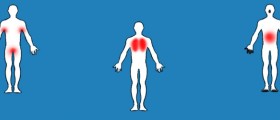
Salmonella basics
First of all, not every person who ingests the bacteria is bound to get ill. In most cases, it is the infants and the children who end up being sick. Every year, some 50,000 people get infected with salmonella and 30% of all cases are children under the age of four.Nontyphoidal salmonella is the type that affects the humans most often. This particular type is usually carried by chickens, cows and various reptiles, like iguanas, turtles and lizards.
Humans can also carry a certain type of salmonella infection known as typhoidal salmonella. This type is usually transmitted through direct contact with a fecal matter of an infected person. Fever, abdominal pain, headache, lethargy, skin rash and constipation are usually present when a person is infected with this kind of salmonella.
Signs and symptoms
In most cases of salmonella infections, a person is highly likely to experience nausea, vomiting, abdominal cramps, diarrhea, fever and headache. A stool sample is needed in order for the proper diagnosis to be made.
In most cases of salmonella infections, the signs will appear within three days after contamination. In case of typhoid salmonella, a person is likely to experience some strange symptoms in the second week, like an enlargement of spine and liver and a rose spotted skin rash.
A person who has a compromised immune system, a sickle cell disease or takes cancer-fighting drugs or chronic stomach acid suppression drugs is more likely to experience a serious complication from a salmonella infection.
Prevention
An excellent way to prevent salmonella is by not serving raw or undercooked eggs, meat or poultry. Washing the hands and the kitchen instruments is also very important.
In cases where there is no fever, headache or bloody diarrhea, there is no need to go to the hospital and the infection will go away on its own.

















Your thoughts on this
Loading...